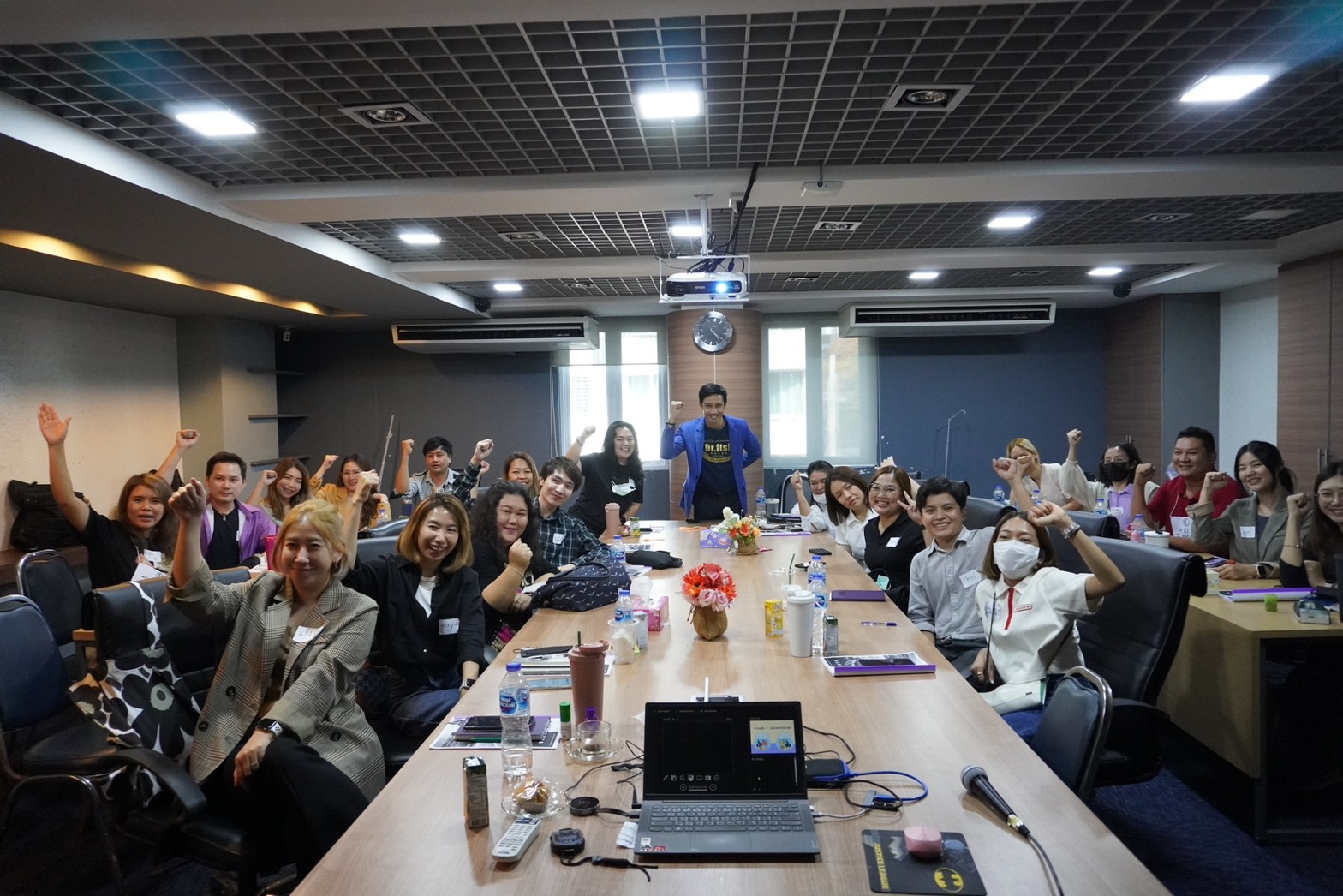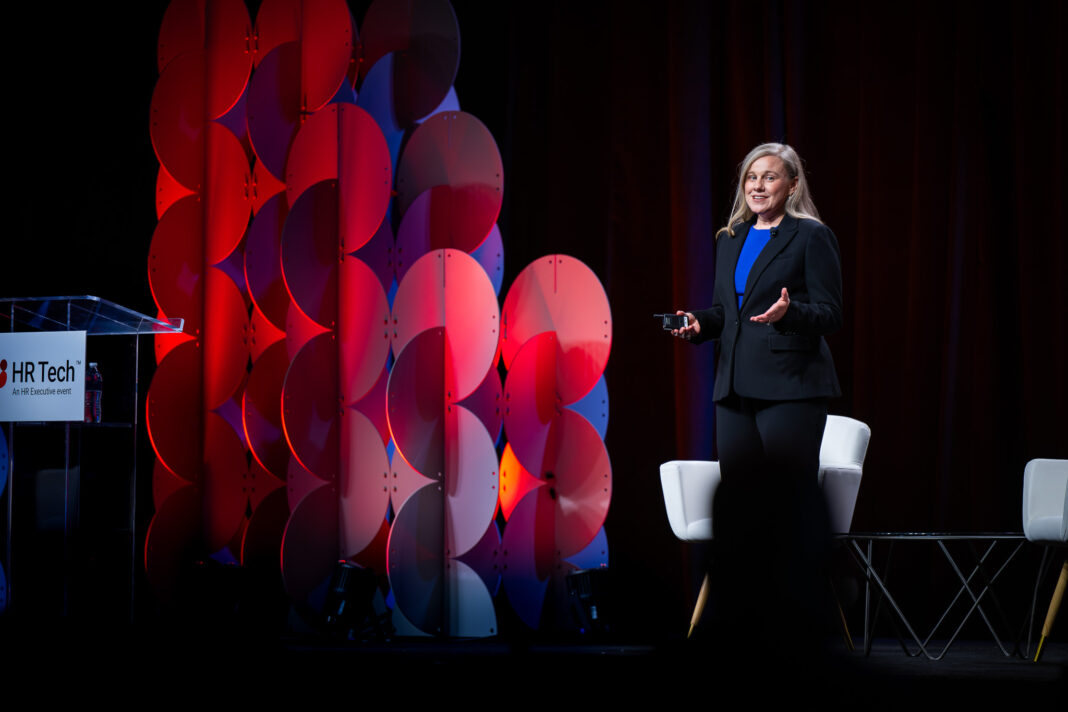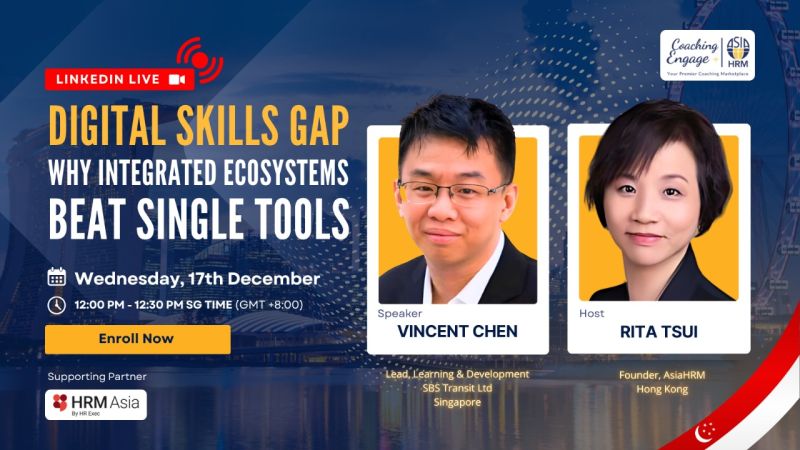Elevating HR leadership: Leading change with impact
- Josephine Tan

The dynamic nature of today’s business landscape demands exceptional leadership and adept change management. In this context, HR leaders have emerged as crucial drivers of business transformation. They are at the forefront of fostering employee engagement and effectively managing workforce shifts, playing a pivotal role in propelling organisations towards long-term success.
Laura Gui, Vice-President of People and Culture, Asia-Pacific, RS, understands that the key to success in this fast-paced and ever-changing environment lies in being closely connected to the organisation and having a deep understanding of its operations.
As Gui shared with HRM Asia, at RS, the HR team actively participates in business meetings and accompanies sales teams on customer visits. This approach ensures that they are well informed about the organisation’s performance and challenges and helps to develop a comprehensive understanding of the organisation’s operations and dynamics. “Furthermore, all business key performance indicators are aligned with HR objectives and measures,” she added, effectively contributing to the organisation’s growth and transformation.
Indeed, managing and leading people in HR involves overseeing and optimising the workforce of an organisation to ensure its success and achieve its strategic objectives. In recent years, the integration of data and analytics has transformed HR practices, enabling more informed decision-making and improved outcomes. They can be implemented in workforce planning and recruitment, performance management, learning and development, employee relations and wellbeing, and many more.
Gui highlighted the role of data in HR, emphasising that RS possesses an extensive collection of analytics and insights. She explained, “Through the utilisation of these data and insights, we are capable of promptly and accurately identifying gaps or opportunities within the entire organisation, leadership, or HR team.”
“Subsequently, we can develop a comprehensive action plan to effectively address these issues or capitalise on the opportunities. RS operates on short cycles, necessitating frequent reflection and refinement of our strategies to ensure alignment with our business and customer needs.”
Enabling talent outcomes
RS, founded in 1937 as Radiospares, has expanded its operations across three regions, namely Europe, the Middle East and Africa (EMEA), the Americas, and Asia-Pacific. In its ESG Report for 2022/23, the organisation outlined four key goals in the areas of advancing sustainability, championing education and innovation, empowering people, and doing business in a responsible way.
One of these goals is to collaborate with education providers in order to build skills and foster innovative solutions that improve lives. RS has set a target to work with 1.5 million young engineers and innovators to drive this objective. Another important pillar of RS’ ESG strategy is empowering people to create a safe, inclusive, and dynamic culture where everyone can thrive and grow. To support this, RS is committed to working towards having 40% of its leaders be women and 25% be ethnically diverse.
Gui continued, “At RS, we firmly believe that diversity and inclusion are the bedrock of our business. We recognise that having a wide array of talents from different backgrounds and perspectives is essential for success.”

“By embracing diversity and fostering inclusion, we aim to drive innovation, creativity, and excellence throughout our organisation.” – Laura Gui, Vice-President of People and Culture, Asia-Pacific, RS
She stressed that RS is dedicated to actively seeking out nurturing, and advancing individuals from diverse backgrounds, creating an environment where everyone feels welcomed, valued, and empowered to contribute their unique skills and insights. “By embracing diversity and fostering inclusion, we aim to drive innovation, creativity, and excellence throughout our organisation,” she added.
READ MORE: Driving digital transformation with empathetic leadership
In driving a change in organisational culture, Gui recommended focusing on key areas such as leadership development, communication and transparency, training and development, and change management processes. She highlighted that cultural transformation starts with leadership, who set the tone and exemplify the desired values. This involves fostering an inclusive environment that embraces diverse cultures and opinions, where individuals feel valued and empowered to contribute their unique perspectives.
“Accountability is key in driving cultural change, ensuring that all members of the organisation are held responsible for their actions and behaviours. Finally, celebrating successes and changes reinforces positive shifts in culture, motivating employees and fostering a sense of unity and accomplishment,” she concluded. “By focusing on these aspects, organisations can initiate and sustain meaningful cultural change that drives overall growth and success.”






